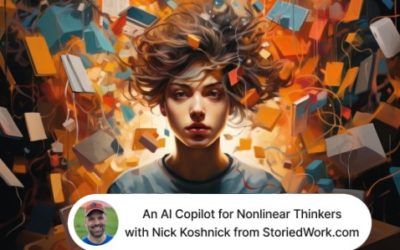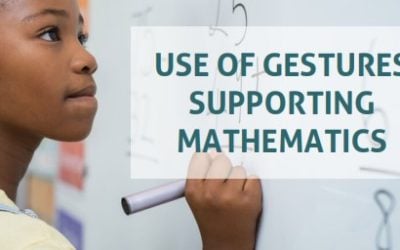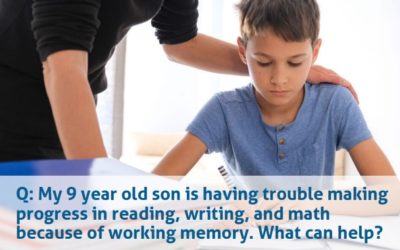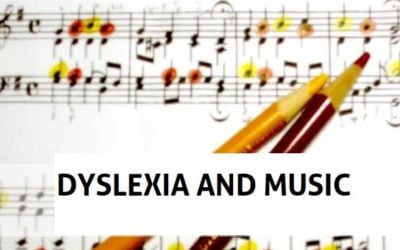What many tutors will have noticed is that many structured literacy strategies require frequent repetition because they focus remediation on tasks that are especially difficult for many dyslexic students – the automatic identification of the phonemes that make up words.
Not the Standard Track: Extracurriculars and Work Experience [Premium]
There are many ways of getting from A to Z and many of them don’t require a 4.0 GPA and elite school tracks. Dyslexics as a group may have trouble following the traditional route to their dream career because many of their academic strengths are late-blooming.
Fostering Creativity: The Early Life of Chuck Close [Premium]
Recently, I came across a paper, by Landmark College Professor Ken Gobbo, writing about the early life of artist Chuck Close – and this led me to an oral history recorded at the Smithsonian.
Dyslexia at Work: Dyslexia-Friendly Hiring? [Premium]
Research suggests that work teams that have at least one neurodiverse member are likely to be 30% more productive, but many companies have hiring practices that may exclude neurodiverse candidates before they are able to demonstrate their strengths.
Research Updates in Gifted Dyslexics [Premium]
Research into the Gifted Dyslexic population remains scarce, but there have been a few articles in the last years that may be helpful in identifying and supporting these students. One difficulty interpreting data from twice-exceptional research is that studies that focus solely on students with unevenness in scores may combine gifted dyslexic student scores with those who are gifted and on the autism spectrum. Because fluid reasoning scores may be very different between gifted and autistic populations, it’s difficult to draw conclusions for either group. As an example, Danika Maddocks in Gifted Child Quarterly undertook a review of 3891 K-12 school children, but failed to distinguish 2e-LD subpopulations. As a result, when she concluded that twice-exceptional LD students could outperform non twice exceptional students in […]
Math and Sciences: Symbols and Dyslexia [Premium]
It’s important to be aware that although many dyslexics have natural strengths in math reasoning and scientific thinking, these strengths may not be evident during K-12 education because of challenges with symbol confusion and polysemous or multiple meaning words in math and science. As a result, even students with high potential in science and math may find themselves underperforming in these subjects. Few specialty teachers receive training in ways to support their dyslexic students, so students are left on their own to figure out lessons and homework. THE PROBLEM WITH SYMBOLS Symbols can be a great challenge to dyslexic students because of a common weakness in snapshot picture or eidetic memory. The same difficulty that makes it so hard to take a picture of spelling […]
Q: How Can I Modify Curricula for Dyslexic Students Without Compromising Standards? [Premium]
We were asked: How can I modify the curricula for dyslexic students without compromising standards? MODIFICATIONS VS. ACCOMODATIONS Usually, when 504s or IEPs are discussed, accommodations are mentioned more often than modifications. Accommodations refer to changes in the way students access content and demonstrate what they know. So for instance, an accommodation for dyslexic students might include extra time, the option to use text-to-speech, or a human reader for tests so that assessment more accurately reflect what students know. Modifications, on the other hand are changes in the content of the curriculum, homework, or what a student is expected to learn. Examples of modifications in a curriculum for dyslexic students might include fewer problems, an option to use spellcheck and a word processor for […]
Organization with Automation using ChatGPT [Premium]
ChatGPT is an AI or Artificial Intelligence-based program that can interact with you like a human in back-and-forth conversation. For dyslexic creatives, the potential to help with organization is immense. There are cautions about the technology, but also tremendous opportunities. FREE CHAT GPT vs PAID Currently using the free version of ChatGPT can give you a brief idea of how to communicate with the program, but information doesn’t stay long in the free version (for instance some guidelines you gave it yesterday may not be kept) and answers are also much simpler. The paid version for individuals is currently $20 per month if paid annually. The $20 per month rate allows you 40 messages in three hours. An Enterprise membership is more expensive, but […]
Nick Koshnick: StoriedWork.com An AI Co-Pilot for Non-Linear Thinkers
Nick Koshnick is a Stanford PhD and seasoned entrepreneur who raised money from companies like Google and Andreessen, and then sold the company.. He's also dyslexic. Now, he's co-founded StoriedWork.com with business partner Frank Corrigan. Storied has been nicknamed...
Use of Gestures Supporting Mathematics
There's an interesting paper by Hord and colleagues that showed how a secondary math teacher supported a student with LD and math anxiety using gestures. Gestures can sometimes be used to help remember and retrieve math actions and relationships in long-term memory....
What Can Help with Working Memory Limitations?
Q: My 9 year old son is having trouble making progress in reading, writing, and Math because of working memory. What can help? Working memory is a type of memory that allows us to temporarily hold information 'in mind' to be used for other cognitive tasks. Some people...
Dyslexia and Music
"I'm dyslexic, so the notes just jump out at me. It's the same with words too. That's why the Key Editor in Cubase is the best thing for me as I see things in shapes and colors." — Grammy Award-winning composer producer Lorne Balfe Here in the United States, it's...

![MIND Strengths for Tutors: Material Reasoning [Premium]](https://www.dyslexicadvantage.org/wp-content/uploads/2024/04/Material-Reasoning-Premium-2-400x250.jpg)
![Not the Standard Track: Extracurriculars and Work Experience [Premium]](https://www.dyslexicadvantage.org/wp-content/uploads/2024/04/Extracurriculars-and-Work-Experience-Premium-1-400x250.jpg)
![Fostering Creativity: The Early Life of Chuck Close [Premium]](https://www.dyslexicadvantage.org/wp-content/uploads/2024/04/Fostering-Creativity-The-Early-Life-of-Chuck-Close-DAs-400x250.jpg)
![Dyslexia at Work: Dyslexia-Friendly Hiring? [Premium]](https://www.dyslexicadvantage.org/wp-content/uploads/2024/04/Dyslexia-at-Work-Dyslexia-Friendly-Hiring-Premium-1-400x250.jpg)
![Research Updates in Gifted Dyslexics [Premium]](https://www.dyslexicadvantage.org/wp-content/uploads/2024/03/Research-Updates-in-Gifted-Dyslexics-A-400x250.png)
![Math and Sciences: Symbols and Dyslexia [Premium]](https://www.dyslexicadvantage.org/wp-content/uploads/2024/03/Math-and-Sciences-1-400x250.jpg)
![Q: How Can I Modify Curricula for Dyslexic Students Without Compromising Standards? [Premium]](https://www.dyslexicadvantage.org/wp-content/uploads/2024/03/Modify-Curricula-for-Dyslexic-students-400x250.jpg)
![Organization with Automation using ChatGPT [Premium]](https://www.dyslexicadvantage.org/wp-content/uploads/2024/03/Organization-with-Automation-Using-ChatGPT-400x250.jpg)

















